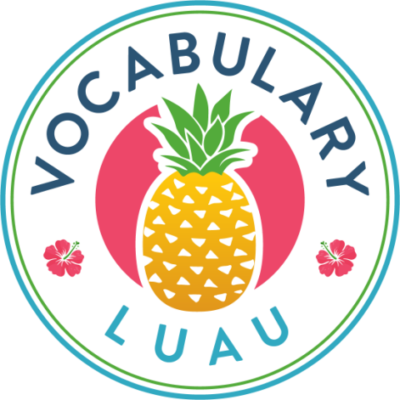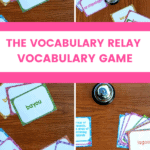I just love those activities that get kids running around, learning and moving simultaneously. This is one of those activities. You’ll wish your administrator was evaluating you that day because engagement is through the roof!
In the Vocabulary Relay game, teams of students race to grab the vocabulary word that matches the clue they were given.
This is fast-paced game that students really like. It takes a little bit of prep work, but you can reuse it over and over, so I think it’s worth it.
It’s also kind of fun to set it up.
I’m excited to show you how I do it so you can try it, too!
? How to Prepare the Vocabulary Relay Vocabulary Game
You’ll need to create and print out the vocabulary words on one set of cards. I make a number of copies of this set so that students can play in teams.
This is a part of my landform set of cards. You can see that I have multiple cards with the same vocabulary word on them.
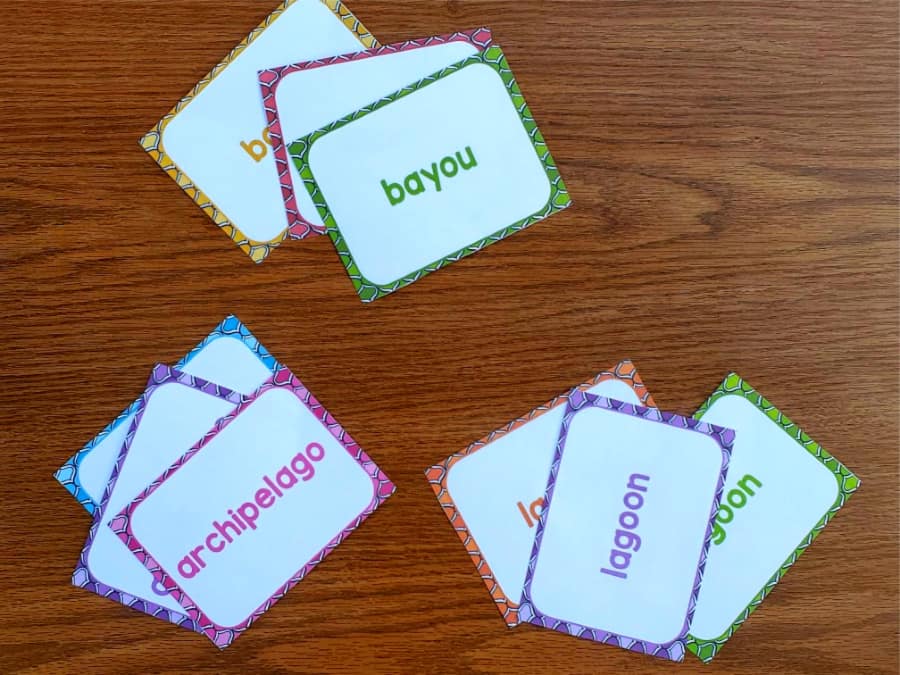
You also need to make another set of matching cards with definitions, context clue, or sentences in which they could be used (fill-in-the-blank).
You can make multiple clues for each vocabulary word, or you can just use one clue per vocabulary word.
You only need one set of these cards.
? How the Clue Cards Work
For example, if my vocabulary word is “biome,” I would make the number of copies of that card that I wanted (one per team or fewer).
Then, I would make clue cards to match with a clue (a definition, a context clue, fill-in-the-blank, examples, etc.).
For biome, if I wanted the clue to be a definition, I’d make a card that said, “a large naturally occurring community of flora and fauna occupying a major habitat.”
If I wanted more clues, I could make more cards that had clues such as:
- Examples of this include tundra, forest, marine, desert, or ocean
- This can be classified according to the plants and animals that live in it
- The largest one of these in the world is the taiga
This is optional. You only have to have one clue. I like to have more, but it’s up to you!
That’s all the prep!
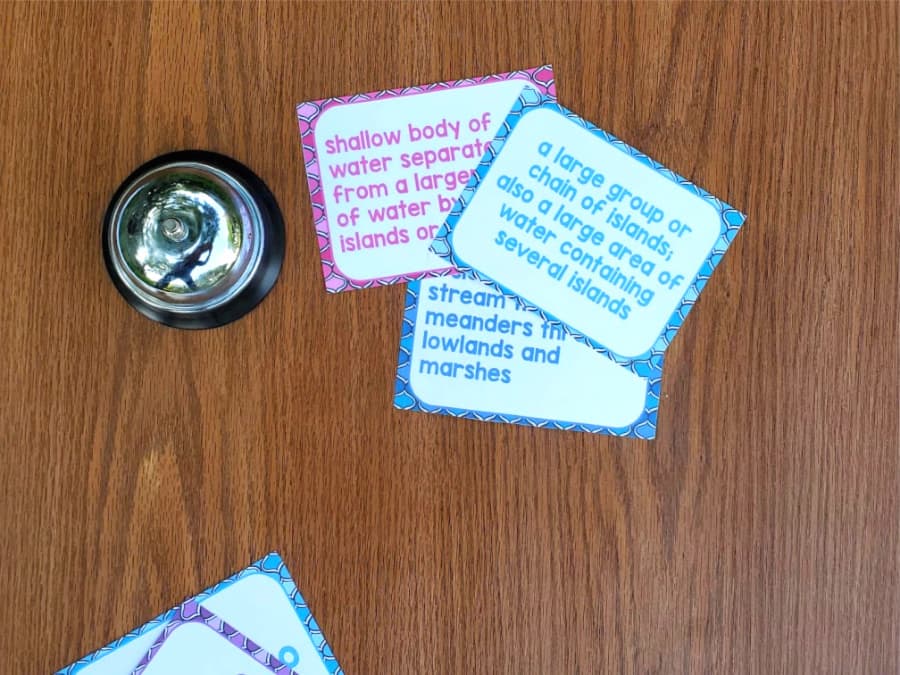
I use these cards for other activities, too, so even though it takes a little time to do this, I find that it’s worth it.
When you’ve got your cards, you’re ready to play!
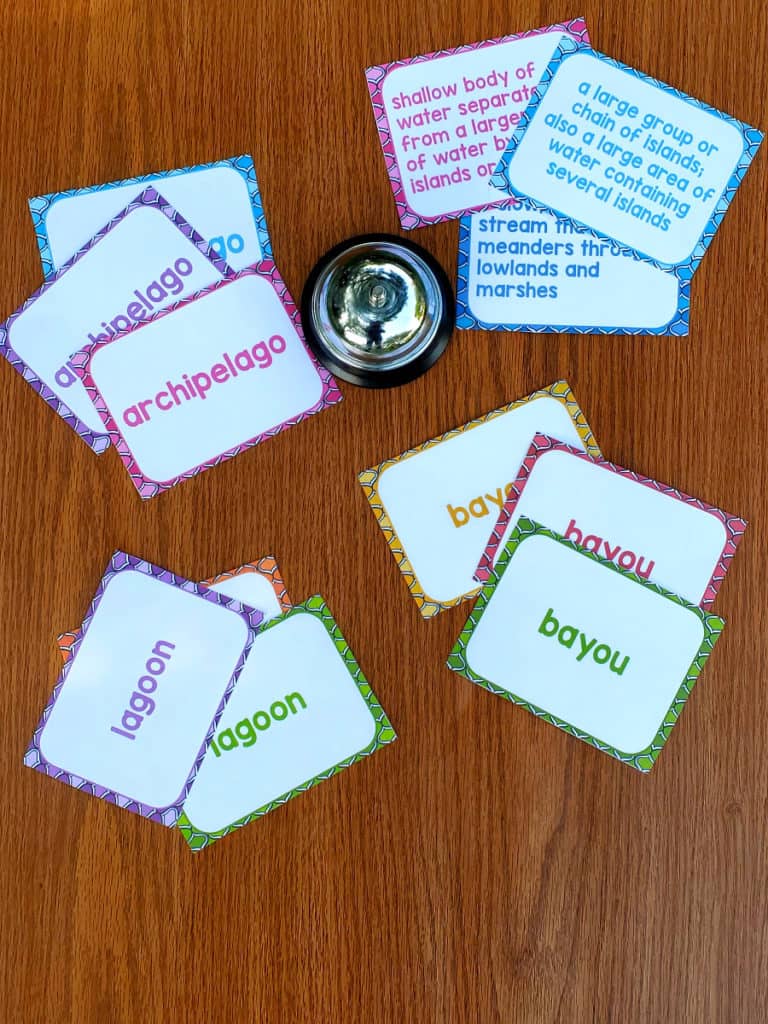
? How to Play the Vocabulary Relay Game
To play, jumble up the vocabulary words face down in a pile in the middle of the floor. (You can use a table if you want. We like to play on the floor!)
Shuffle these up. You want them all mixed up. They don’t need to be in a pile. They can be scattered around, but they need to be face down.
Next, jumble up the matching cards – the ones with definitions, context, and/or sentences. Put those in a stack. The teacher keeps those.
Break students into teams of five-ish.
The teacher draws a card from the pile of definitions, context, and/or sentences and calls it out to the students.
Give the students some think time (about 8 seconds) to talk as a team about what word they think it is. I ring a bell when time is up, but you can signal it any way you want.
After the discussion time, the teacher calls out “Word!” One member from each team runs to the center and tries to find the word in the pile.
I like having multiple sets of the words so more than one team can get it. If I have five teams, I’ll have three copies of each word. In the directions, I said to have one of these for each team or fewer.
If you want to make it less competitive, you can have a copy for every team.
Check to make sure they’re correct, and then discuss the word briefly before the next round.
Have them put the cards back in the pile if you have more than one clue for each vocabulary word (or if you want students to think that the word might be called again).
? Why the Vocabulary Relay Game is a Worthwhile Activity
I love this game because it moves quickly. I also love that the students are working cooperatively in groups. If you like quiet, this is not the game for you! It gets a little raucous in the best way.
The strength of it with regard to the vocabulary itself is that they have to come up with the word from a wide range of possibilities.
It’s not a matching game. They don’t necessarily know what words are in the mix, so they have to consider all of the words it could possibly be.
I’d love to see a functional MRI of the kids’ brains when we’re doing this, because I know they’d be on fire.
There’s another strength in that you can have multiple clues, as I mentioned in the prep part.
I prefer that, but it does make the game last longer, so you have to decide what will work best for your students.
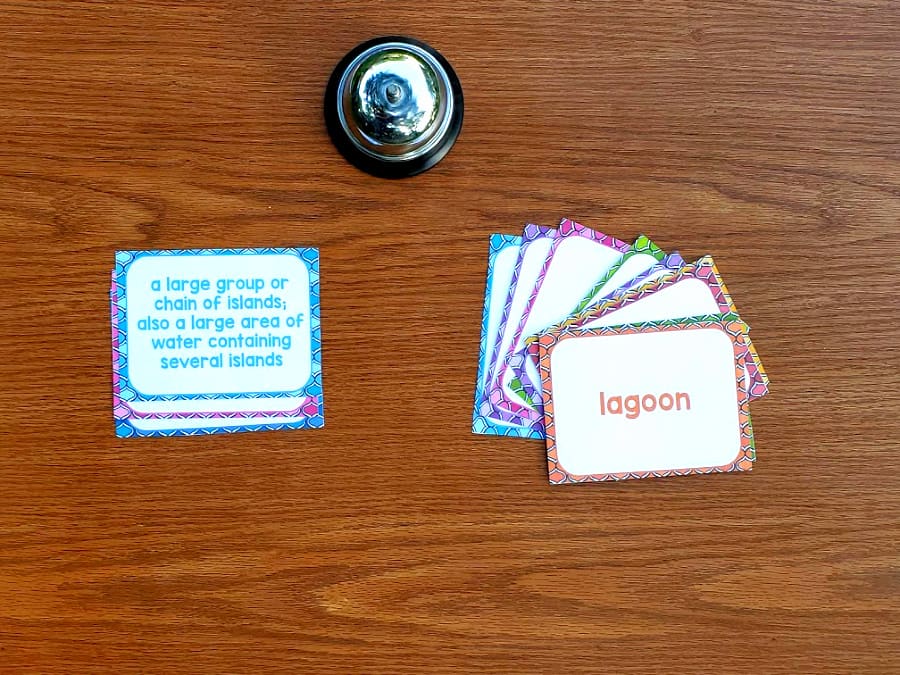
? Making the Vocabulary Relay Game Even Better
To strengthen this game, pause after the teams grab the matching words and do a de-brief.
Ask questions like:
- What other words did you consider other than this one?
- Does this word have an opposite?
- Can you think of another clue for this word?
- On a scale of 1 – 5, how hard is it to really remember the meaning of this word?
? A Variation of the Vocabulary Relay Game
My students like to play a variation of the vocabulary relay game where I have a student read the clues and we play the entire class against me.
If your principal is a good sport, the kids absolutely love playing against the principal. So fun!
? Wrapping Up:
The vocabulary relay game belongs in every teacher’s repertoire. It really helps students gain ownership of the words, and it builds a sense of community in the classroom.
I’m admitting right away that it takes some prep, so you’re forewarned, but I promise it’s worth it. I like to laminate the cards to make them last longer because I reuse these cards over and over. I like them to last!
I hope you try it and that your students like it as much as mine do.
Note: I’ve been using this so long, I have no clue where I originally got the idea. I’ve scoured the internet looking for it, but I couldn’t find it. If you know, where it came from, please let me know!?
?You May Also Like:
- Vocabulary Categories Relay Game (similar to this one, but has very different applications & can be played virtually)
- Playing with Concept Cubes to Teach Vocabulary
- How Tally Marks Can Help You Teach Vocabulary
If you would like to be a Vocabulary Luau insider, sign up here & grab your free two-page list of vocabulary question stems. I’d love to have you join the party!????
